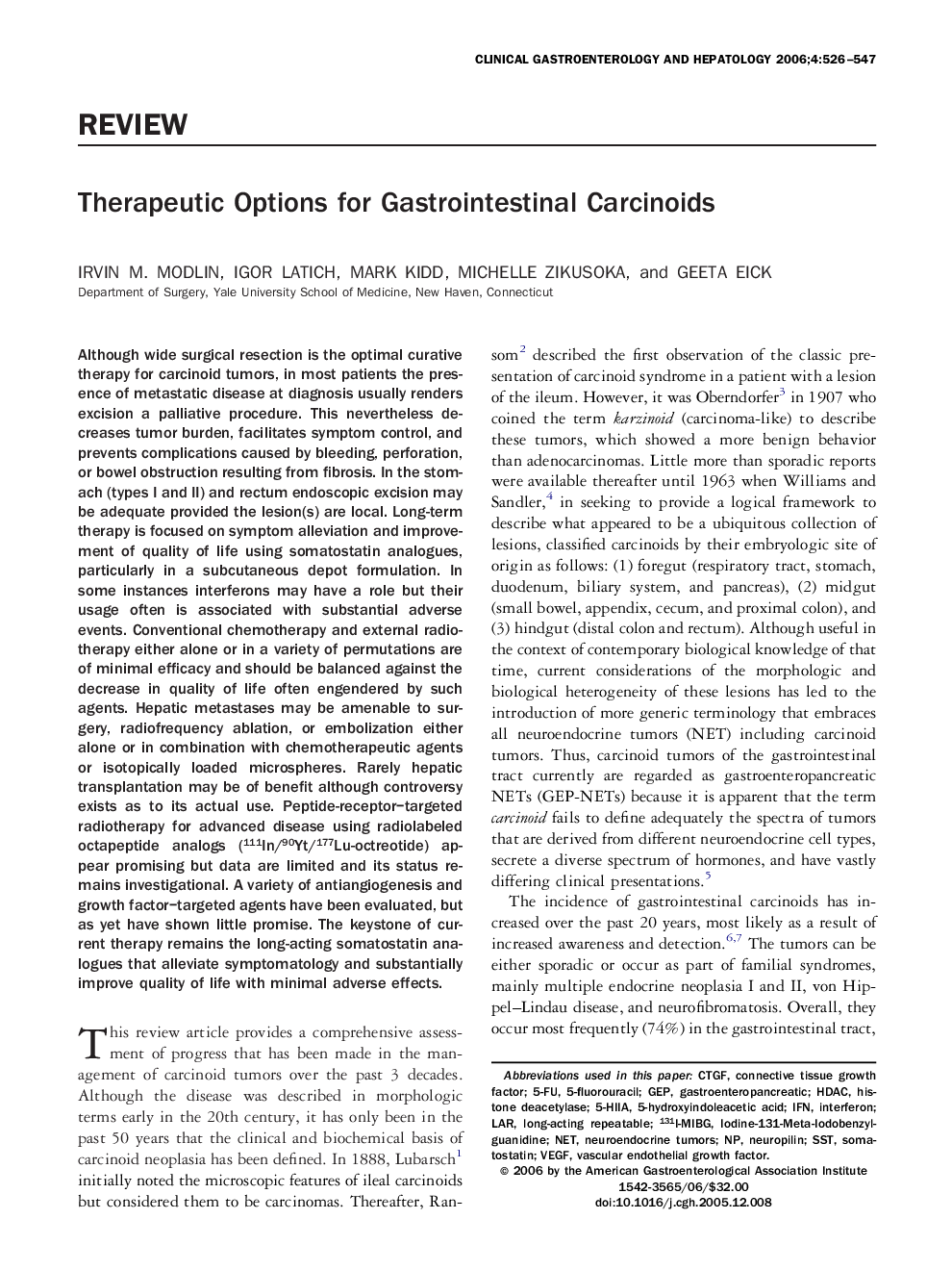| کد مقاله | کد نشریه | سال انتشار | مقاله انگلیسی | نسخه تمام متن |
|---|---|---|---|---|
| 3285800 | 1209242 | 2006 | 22 صفحه PDF | دانلود رایگان |
عنوان انگلیسی مقاله ISI
Therapeutic Options for Gastrointestinal Carcinoids
دانلود مقاله + سفارش ترجمه
دانلود مقاله ISI انگلیسی
رایگان برای ایرانیان
کلمات کلیدی
131I-mIBGGEP5-FUCTGFHDACSST5-Hydroxyindoleacetic acid - 5-هیدروکسی سدیم اسیدinterferon - اینترفرونIFN - اینترفرون هاneuroendocrine tumors - تومورهای نوروندوکرینNET - خالصSomatostatin - سوماتواستاتینVascular endothelial growth factor - فاکتور رشد اندوتلیال عروقیVascular Endothelial Growth Factor (VEGF) - فاکتور رشد اندوتلیال عروقی (VEGF)Connective tissue growth factor - فاکتور رشد بافت همبند5-fluorouracil - فلوروراسیل-۵، فلوئورواوراسیلLar - لارNeuropilin - نوروپیلینhistone deacetylase - هیستون داستیلازGastroenteropancreatic - گاستروانترپانکراسی
موضوعات مرتبط
علوم پزشکی و سلامت
پزشکی و دندانپزشکی
بیماریهای گوارشی
پیش نمایش صفحه اول مقاله

چکیده انگلیسی
Although wide surgical resection is the optimal curative therapy for carcinoid tumors, in most patients the presence of metastatic disease at diagnosis usually renders excision a palliative procedure. This nevertheless decreases tumor burden, facilitates symptom control, and prevents complications caused by bleeding, perforation, or bowel obstruction resulting from fibrosis. In the stomach (types I and II) and rectum endoscopic excision may be adequate provided the lesion(s) are local. Long-term therapy is focused on symptom alleviation and improvement of quality of life using somatostatin analogues, particularly in a subcutaneous depot formulation. In some instances interferons may have a role but their usage often is associated with substantial adverse events. Conventional chemotherapy and external radiotherapy either alone or in a variety of permutations are of minimal efficacy and should be balanced against the decrease in quality of life often engendered by such agents. Hepatic metastases may be amenable to surgery, radiofrequency ablation, or embolization either alone or in combination with chemotherapeutic agents or isotopically loaded microspheres. Rarely hepatic transplantation may be of benefit although controversy exists as to its actual use. Peptide-receptor-targeted radiotherapy for advanced disease using radiolabeled octapeptide analogs (111In/90Yt/177Lu-octreotide) appear promising but data are limited and its status remains investigational. A variety of antiangiogenesis and growth factor-targeted agents have been evaluated, but as yet have shown little promise. The keystone of current therapy remains the long-acting somatostatin analogues that alleviate symptomatology and substantially improve quality of life with minimal adverse effects.
ناشر
Database: Elsevier - ScienceDirect (ساینس دایرکت)
Journal: Clinical Gastroenterology and Hepatology - Volume 4, Issue 5, May 2006, Pages 526-547
Journal: Clinical Gastroenterology and Hepatology - Volume 4, Issue 5, May 2006, Pages 526-547
نویسندگان
Irvin M. Modlin, Igor Latich, Mark Kidd, Michelle Zikusoka, Geeta Eick,